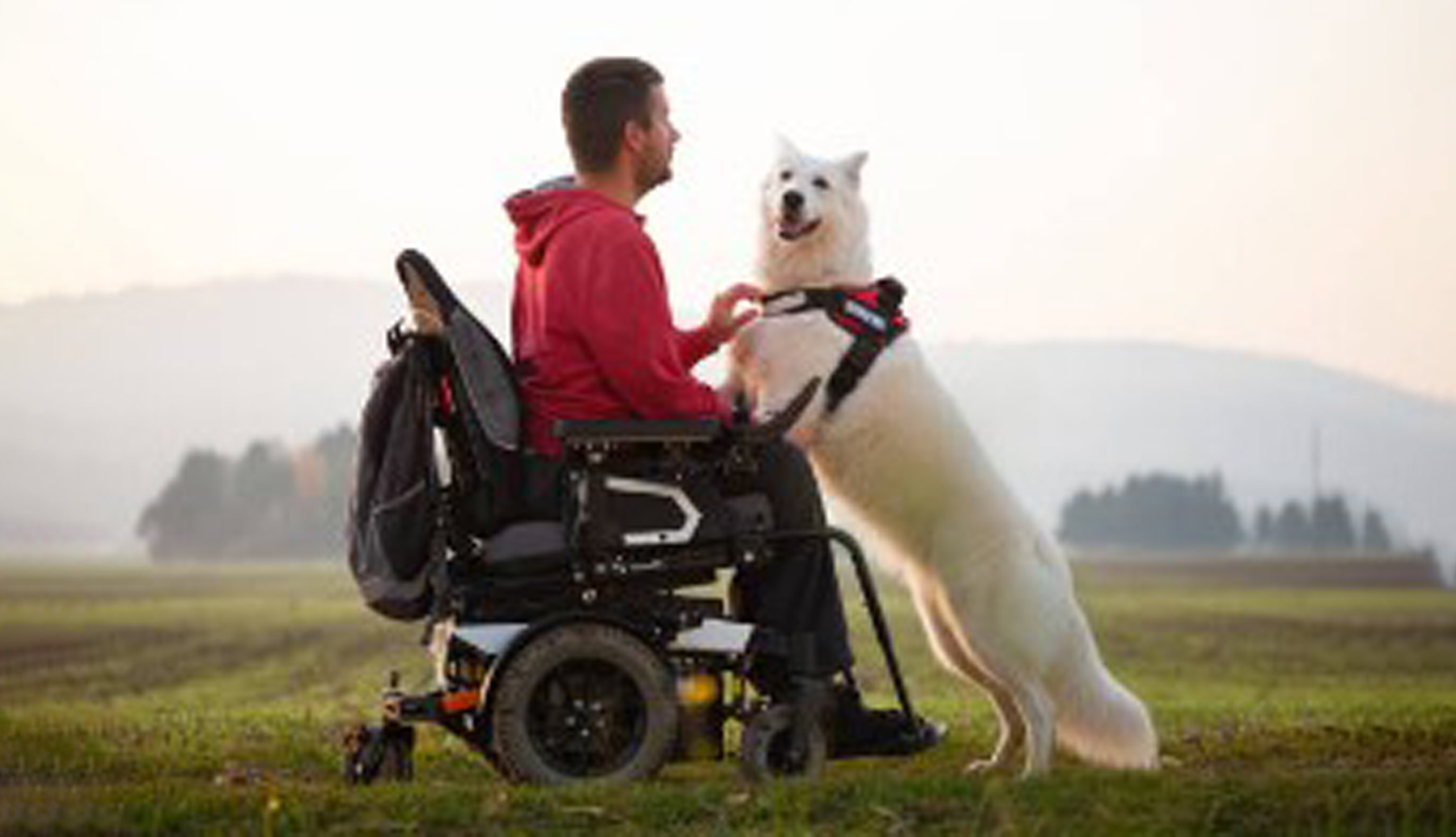The Benefits and Challenges of Obtaining a Service Dog for Seniors with Disabilities
by Norman Scott
 You can listen to an audible version of this article.
You can listen to an audible version of this article.
Seniors can greatly benefit from having a service dog, as these specially trained animals can assist with various tasks and help seniors retain their independence. Service dogs are skilled at performing a diverse array of functions and can be a valuable resource for seniors who may need additional assistance with specific activities. If you are a senior or know of one who may benefit from a service dog, it may be worth considering getting one.
What is a service dog?
A service dog is a type of assistance dog specifically trained to assist people with disabilities, such as visual impairments, hearing impairments, mobility impairments, and other disabilities. These dogs are trained to perform tasks that help their human partners lead more independent lives. Some examples of tasks that service dogs can be trained to perform include guiding a person who is blind or visually impaired, alerting a person who is deaf or hard of hearing to sounds, reminding a person to take their medication, assisting a person with mobility issues by carrying items or helping them balance, and providing emotional support to people with mental or emotional disabilities. Service dogs are protected under the Americans with Disabilities Act (ADA) and are allowed to accompany their human partners in public places where pets are usually not allowed.

Why does a senior need a service dog?
There are many reasons why a senior might benefit from having a service dog. Some seniors may require a service dog due to a physical disability or medical condition that makes it challenging to perform certain tasks. For example, a senior with mobility issues may benefit from a service dog that can help them maintain balance while walking or retrieve items for them. Other seniors may benefit from a service dog due to a cognitive or mental health condition that impacts their daily functioning. For example, a senior with dementia may benefit from a service dog that can assist with memory tasks or provide emotional support. Service dogs can also offer companionship and a sense of security for seniors who live alone or have limited social support. They can provide emotional support during times of stress or anxiety and can bring comfort and joy to seniors who may feel isolated or lonely. Overall, service dogs can be an invaluable resource for seniors who need additional help with specific tasks or who may benefit from the companionship and support of a trained animal.
Where can one get a service dog in Toronto?
There are a number of organizations in Toronto that provide service dogs to individuals with disabilities. Some options include:
• Canadian Guide Dogs for the Blind: This organization provides guide dogs to individuals who are blind or partially sighted.
• Dog Guides Canada: This organization provides a variety of service dogs, including guide dogs, hearing dogs, and service dogs for people with physical disabilities.
• Lions Foundation of Canada Dog Guides: This organization provides service dogs for individuals with physical, medical, and developmental disabilities.
• Service Dogs for Children with Autism: This organization provides service dogs to children with autism and their families.
You can also check with local animal shelters or rescue groups to see if they have any service dogs available or can help you find a service dog. It is important to do thorough research and consider your specific needs when choosing a service dog and an organization to work with.

What are the costs associated with owning a service dog?
The cost of getting a service dog can vary greatly depending on a number of factors, including the type of dog, the training required, and the organization you obtain the dog from. In general, the cost of getting a service dog can range from a few thousand dollars to over twenty thousand dollars.
The ongoing cost of maintaining a service dog can also vary, but some estimates suggest that it can cost around $1,500 to $3,000 per year to care for a service dog. This includes expenses like food, veterinary care, and training. It is important to consider the ongoing cost of maintaining a service dog before making the decision to get one.
Things to consider before diving-in
There are several things to keep in mind when considering getting a service dog. These include the cost of obtaining and maintaining the dog, the time and effort required for training and care, the potential for encountering people who may not be familiar with service dog laws, and the dog's medical and behavioral health. It is also important to consider your own personal preferences and needs, such as any allergies you may have. Service dogs can be expensive to purchase and maintain, and may require extensive training and regular exercise, grooming, and attention. They are allowed in public places where pets are not, but you may still encounter people who are unaware of service dog laws and try to prevent you from bringing your dog into certain areas. It is important to choose a dog that is capable of performing the tasks required for your medical condition or disability, and that has a good temperament. ![]()







